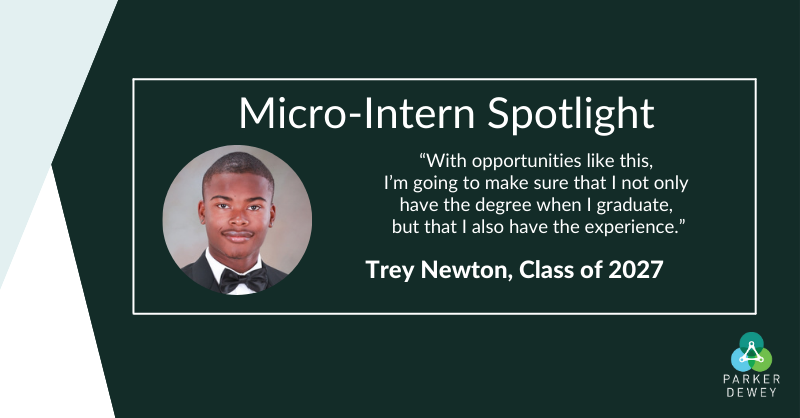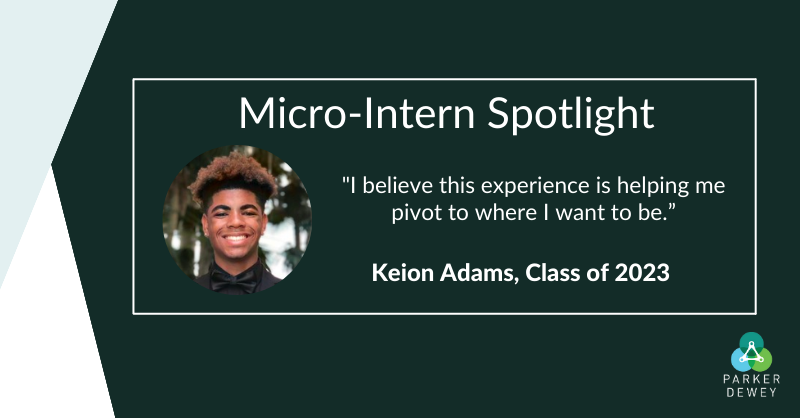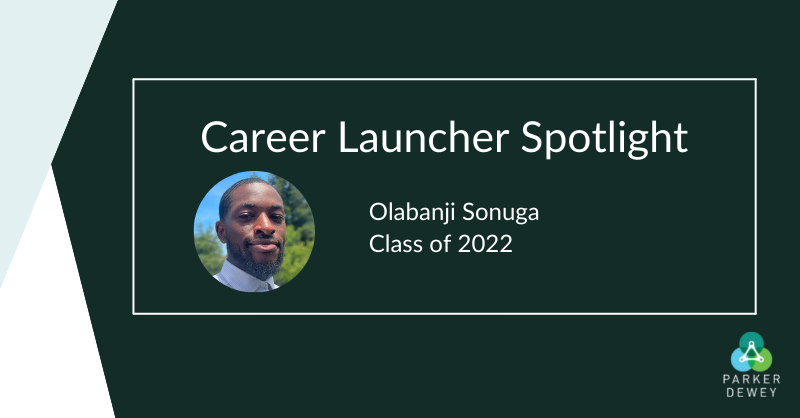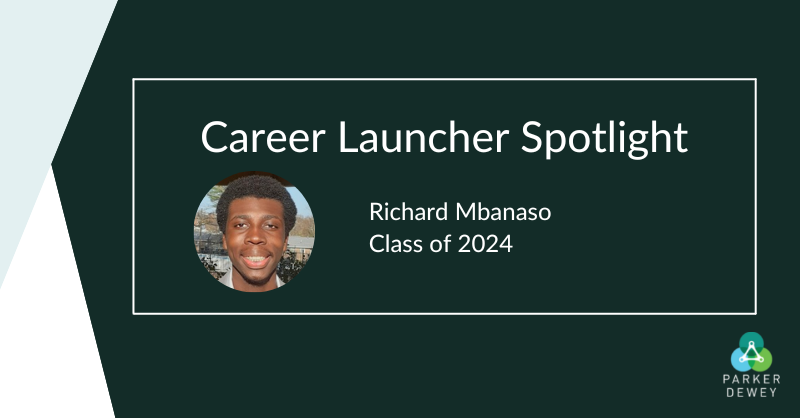
An Accessible Starting Point with IBM
When Trey Newton arrived at a meeting with a representative of IBM, the sophomore Computer Science major hadn’t anticipated spending a whole hour speaking with the representative about how roles at IBM intersect with different STEM majors. However, Trey embraced the opportunity and conversation, and came away not only with insights about IBM, but also with awareness of an exciting opportunity to put his AI knowledge and research skills to the test.
The IBM Micro-Internship Program
The IBM SkillsBuild Micro-Internship program is a unique collaboration between higher education and industry, focused on the workforce readiness of individuals from historically underrepresented backgrounds. As a sophomore student at South Carolina State University, a Historically Black College and University (HBCU), Trey was exactly the audience the program is designed to support. Through this innovative program, students like Trey, who have completed IBM SkillsBuild badges in AI, cybersecurity or data analytics, are able to apply their training to real-world projects. These paid Micro-Internship projects, posted on the Parker Dewey platform and funded by IBM, are posted by companies that have an interest in engaging with early-career talent to hire for future technical roles.
Getting Started
For Trey, that conversation with the IBM representative was the first time he’d heard about Micro-Internships, but he was no stranger to IBM SkillsBuild. The representative made it clear that because Trey had already completed IBM badges, he could create a Parker Dewey profile and be eligible for exclusive Micro-Internships right away.
Trey appreciated not only the information about the program, but also the advice the representative shared with him about applying to Micro-Internships. In particular, understanding the importance of making sure his profile and resume were complete and up-to-date was helpful to Trey as he prepared to apply. Once his profile was ready, Trey was excited by how easily he was able to find relevant opportunities.
“I quickly saw IBM projects at the top of my dashboard, which was so convenient. As a computer science major who had completed the AI SkillsBuild badge, I was excited to apply for AI projects, and I was selected for one within 2 weeks."
Experience That Leads to More Experience
As Trey embarked on the project, he was most excited about building real experience in a field relevant to his desired career path and in a way that worked with his schedule. In addition to his studies, Trey also balances competing in the 100, 200, long jump, and triple jump as part of SC State University’s track and field team.
These commitments don’t leave Trey with a lot of time for building experience during the academic year. Accordingly, Trey resolved early in his studies to build experience during his summer breaks, but was disappointed last summer when he came to understand that most companies don’t accept first-year students for internships.
Thankfully, Trey had still been able to secure an on-campus summer internship, but the realization that off-campus experience that first summer wasn’t an option had been stressful for Trey. He had long understood that a degree alone didn’t guarantee the achievement of his long-term career goals.
“As a college student, I keep hearing that a degree without experience, especially in STEM, is not necessarily going to get you a job… I’m planning to become a software developer, and when I look at those job descriptions, you need 2 years of experience and a bachelors.”
This experience-focused mentality is why Trey was so excited to learn about the short-term, professional project nature of Micro-Internships. He quickly realized that these opportunities could work with his schedule throughout the year, even as an underclassman and student-athlete.
“I see Micro-Internships as a way to start building that experience piece. They’re a great way for any education level to learn about the subject matter and start getting that experience on their resume that can lead to other opportunities… Not only are we getting money, but even more important is the experience to prepare us for our future careers.”
With the help of Micro-Internships and the doors that open as a result of early experience, Trey is determined to not only have the degree when he graduates, but also the experiences that will get him hired.
Identifying Transferable Skills
As Trey worked on his AI research project, he was also pleased to find that many of the skills he’d developed in the classroom and during his on-campus internship experience translated well to the Micro-Internship.
“There are a lot more parallels than some people would think. I got to go to a convention after my internship to present on what our group did over the summer. For my Micro-Internship, I used a lot of those same presentation skills and even some of the same knowledge.”
This realization also led Trey to appreciate the soft skills he was building, in addition to the technical abilities he was perfecting in the classroom.
“We think our jobs are just going to be coding and projects, but I’m realizing that there’s also a need to do presentations about those projects and be able to represent our organizations at events. Parker Dewey allowed me to better understand the skills I’ll need for that aspect of my career.”
Trey also articulated the importance of reflecting on each experience, and how those transferable skills were similar to the different programming languages he is learning in his classes. Trey shared that the coding knowledge he’d developed in just the first year of his computer science degree had ended up being relevant to the AI research he did in his Micro-Internship.
“If you know how the language works, you can build the same systems in other languages. You just need to be able to translate it… That connects to AI because at the end of the day, it’s a bunch of code. It’s only going to do what you ask it to do, and if there’s something wrong with your code, it’s not going to run… My Micro-Internship gave me a really interesting frame of mind for thinking about how different languages operate.”
Advice for Students
Trey’s advice to peers interested in Micro-Internships is to not hesitate.
“Just go ahead and do it! You’re not losing anything by applying. You might not hit every one, but that’s the same as scholarships and internships. You might not get it, or you might be going to class or sports and see that congratulations email.”
Trey’s training and perseverance as a student-athlete, as well as advice from his father, were clearly the basis for his mentality and success.
“My father always says - you always have a chance if you try. You’ve got a 0% chance if you don’t. I had that philosophy in mind as I created my account and applied.”
Advice for Employers
For employers, Trey hopes to see a wider range of companies taking advantage of the Micro-Internship model, especially as a way to engage first and second year students who are hungry to learn about new industries.
“I think more corporations need to be offering Micro-Internships - there are so many different ways a Micro-internship can be used, from AI research, to wealth management, to study of raw materials. Any company could do it - small or big. And each of those projects gives students the opportunity for new outlooks.”
Trey also highlighted that Micro-Internships are a great way to find quality talent in unexpected places.
“You hear about companies with all these class, major, and GPA requirements for their internships, but with Micro-Internships, it’s a low-cost way to give students who might not have those qualifications a chance to prove that they actually are a good fit.”
For companies seeking to do exactly what Trey is describing - access potential candidates earlier, and engage talent they might accidentally be missing with traditional recruiting methods - give Micro-Internships a try! Get started by scheduling a call with the Parker Dewey team.




